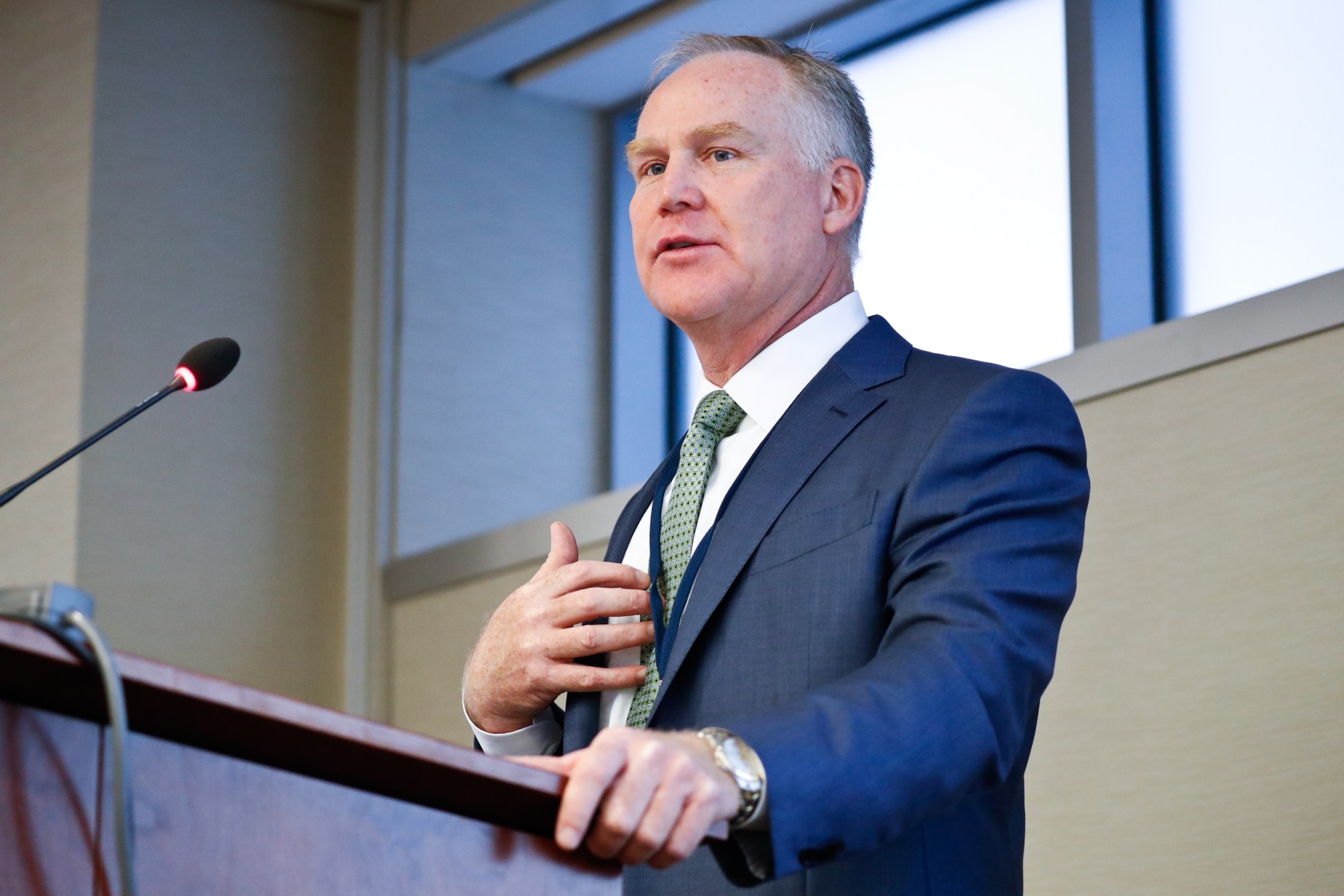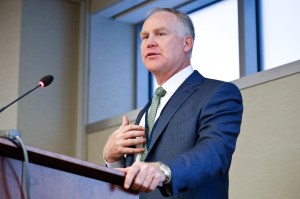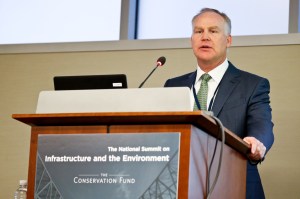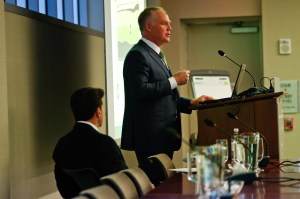Williams President & CEO Alan Armstrong recently delivered the keynote address at the National Summit on Infrastructure and the Environment in Washington D.C.
Hosted by The Conservation Fund, the Summit brings together leaders from business, government and conservation to discuss innovative approaches for streamlining the regulatory process while ensuring protections remain for natural, cultural and historic resources.
Armstrong provided insights on the unique approaches taken by Williams to balance infrastructure and the environment, providing his perspective on the permitting process and suggestions for how it might be improved.
“Natural gas is significantly contributing to a better environment and lowering emissions,” he said. “The ongoing infrastructure build out of this key national resource is important, but proper and environmentally responsible management of the build out should be a priority for us all. I can tell you it is a priority at Williams.”
Armstrong highlighted examples of partnerships Williams had forged with groups like The Conservation Fund to deliver meaningful environmental progress.
In 2014, Williams partnered with The Conservation Fund to develop an environmental stewardship program for the Transco pipeline to protect and enhance the natural environment in the area surrounding its proposed Atlantic Sunrise project. The program ultimately resulted in Williams providing $2.5 million in program funding to support 17 conservation projects, resulting in the restoration of more than 10 miles of wildlife habitat along streams, the construction of eight miles of new trails in central and southeastern Pennsylvania, and the prevention of thousands of pounds of harmful nutrients from entering Pennsylvania waterways.
“As a company, we like to focus our resources where they have local impact,” said Armstrong. “As a CEO – I’d much rather spend $2.5 million on new trails that serve so many people than on unproductive legal fees.”
The summit featured about 200 participants, including staff from the U.S. Department of the Interior, the Corps of Engineers, and the Federal Energy Regulatory Commission.



